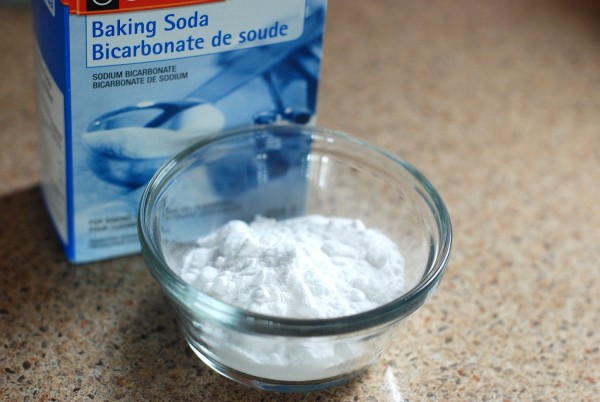Craving for Baking Powder? You May Be Suffering From Pica Disease

Pica disease engages cravings for non-food products like baking soda, clay, cornstarch, baking powder, or even dirt, among others, and it is usually experienced by women during their pregnancy.
A 35-year-old pregnant woman who consumed a one-pound box of baking soda each day before and during her pregnancy reportedly developed severe heart and muscle conditions.
However, according to a 2013 case report, it took the doctors one week from the time of the women's hospital confinement, to determine the root of her life-threatening diseases--collectively identified as the mysterious condition called "pica".
Medical experts say that this condition engages cravings for non-food products like clay, cornstarch, baking powder, or even dirt, among others, and women usually experience it during their pregnancy.
In the case of the mother-to-be, she showed up at a hospital, feeling dizzy and weak on week 37 of her pregnancy.
At first, she was diagnosed to have an irregular heartbeat and weakness of muscle in her legs. She was found to have low potassium levels as well. Potassium, in the nutritional sense, is a type of electrolyte essential for the nerve and muscle cells, particularly the heart muscle, to function correctly.
The case report specified, the doctors treated the condition with medications for the heart and performed a blood transfusion. The doctors induced labor, and on her firth day at the hospital, the woman delivered her healthy 5.4-pound baby boy.
The report also said that further treatment helped improved the woman's creatine kinase levels, although her potassium levels remained low.
ALSO READ: Rare Condition: Teeth in Brain Tumor, Here's What Medicine Explains
Causes of Pica
There is no particular cause of pica. In some circumstances, iron, zinc, or any other nutrient deficiency may be linked to pica.
For instance, anemia, which is typically a result of iron deficiency, may be considered as the underlying cause of pica among expected mothers.
The odd cravings, experts explain, may be an indication that the body is attempting to refill nutrients with low levels.
People who have some mental health disorders like schizophrenia and obsessive-compulsive disorder or OCD are likely to develop pica as their so-called coping mechanism.
Some individuals may even find joy and crave either the flavor or texture of a particular non-food product.
Meanwhile, according to reports, in some cultures eating clay is an accepted practice. This type of pica is also known as geophagia.
DON'T MISS THIS: Can Energy Drinks Cause Heart Attacks? Here's What You Should Know Before Consumption
Some Complications Linked to Pica
Eating particular non-food products can, at times, result in other severe health conditions. Some of them include poisoning, parasitic infections, choking, and intestinal blockages.
Poisoning may specifically mean lead poisoning. For instance, eating paint chips that have lead or any other toxic substance may result in poisoning that can impair the brain of a child.
Additionally, parasites from dirt or any other object can lead to severe infections, which can impair one's liver or kidney.
Treatment
The doctor may probably start by treating any complication the patient may have acquired from non-food consumption. For instance, one who has serious lead poisoning from consuming paint chips, chelation therapy may be prescribed by a doctor.
This kind of therapy involves medication associated with lead. It will then allow the patient to excrete the lead through urine.
Furthermore, the said drug may be taken by mouth, or the doctor may provide a prescription for intravenous chelation mediations, specifically for lead poisonings like the EDTA or ethylenediaminetetraacetic acid, for one.
In some cases, the doctor may order a psychological assessment to find out if the patient has OCD or any other mental condition.
Medical experts note that prescription medications, therapy, or both, may depend on the diagnosis of pica in an individual.
For someone with pica as a result of a mental health condition, medications for behavioral problem management may help lessen or eliminate their cravings for either non-food or non-nutritive products.
IN CASE YOU MISSED THIS: Heterochromia Iridis: A Rare Eye Condition Not Known to Many
Aug 05, 2020 11:41 AM EDT





